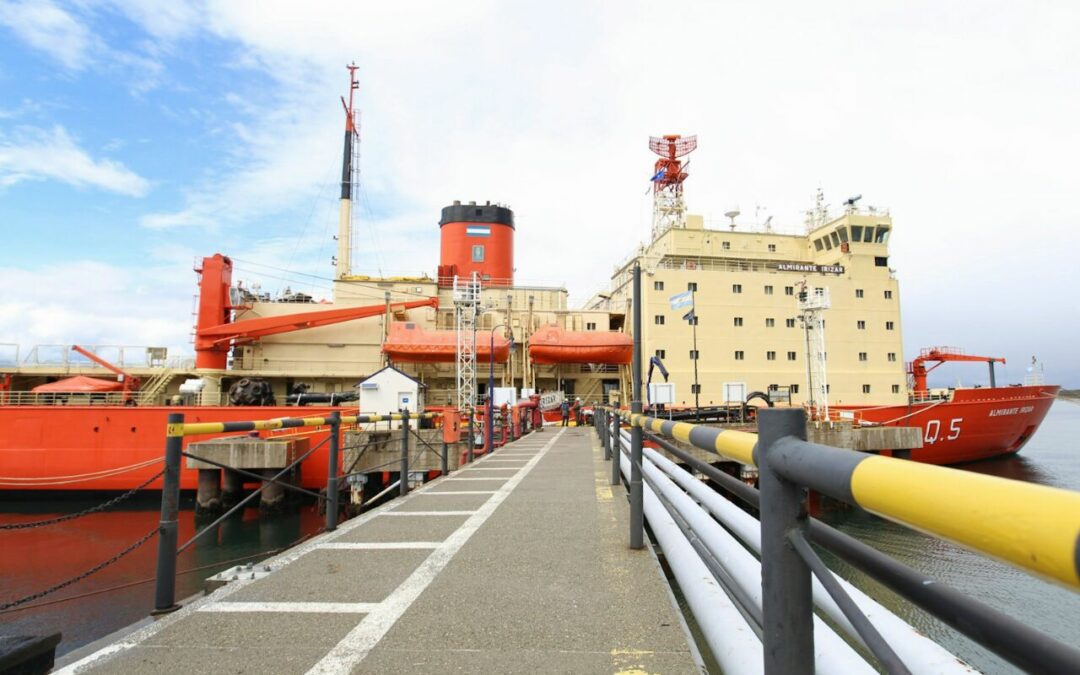Within the framework of the provincial programme of Support and Strengthening of the Argentine Antarctic Bases carried out by the government of Tierra del Fuego, the company EXO granted a Mobile Diagnostic Centre that will allow remote medical assistance to the ship ARA Almirante Irizar.
11 January 2018
In the framework of the provincial programme of Accompaniment and Strengthening of the Argentine Antarctic Bases carried out by the government of Tierra del Fuego, the company EXO granted a Mobile Diagnostic Centre that will allow remote medical assistance to the ship ARA Almirante Irizar.
In this way, the ship has this important state-of-the-art tool to offer the corresponding health care to its crew. It was handed over by the Secretary for Antarctic, Malvinas and South Atlantic Islands and Surrounding Maritime Areas Affairs, Jorge López, to the ship's commander, Maximiliano Mangiaterra.
"The delivery of this equipment is the result of our joint work with the Government of the Province of Tierra del Fuego and our company's sponsorship of Provincial School No. 38 at the Esperanza Antarctic Base," said Alejandro Straschnoy, the company's General Manager.
The device will allow remote electrocardiograms, temperature, blood pressure and blood oxygen saturation measurements during the 2017/18 summer campaign. This ensures improved health care for those in Antarctica Argentina. In addition, all the information collected by the equipment can be transmitted remotely for a team of specialists to assist doctors, paramedics or nurses in need.
For his part, the Commander of the icebreaker Irizar mentioned that "the contribution is very important, as all Navy ships that go to the Antarctic Continent have medical facilities on board and those who contribute to further improve health services are always welcome".
The CDM is portable telemedicine equipment, developed by EXO and based on Intel technology, which is registered with ANMAT. The CDM is already in operation at the Orcadas Base and Marambio Base, in the Argentine Antarctic, and at the University Hospital of Rosario. The CDM meets the requirements of both hospitals and emergency, first aid or rescue units, as it records a person's vital signs in a few seconds and no special knowledge is required to operate it.



